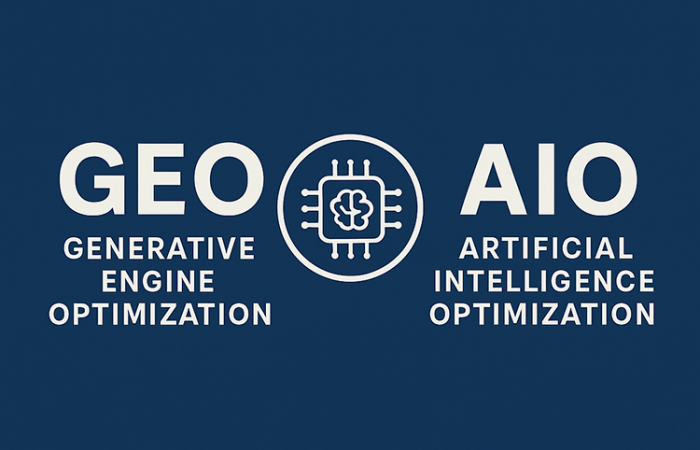The #1 question we get is on how to get your website ranked on Chat GPT. The digital landscape is evolving faster than a TikTok trend. If you’re a business owner relying on Google or Bing for leads, you might feel safe now, but here’s a wake-up call: the search engines you love could soon be the Yellow Pages of the digital world. While Google still reigns supreme, platforms like ChatGPT and other AI models are shaking things up by offering direct, conversational answers to users. If your business isn’t prepared for this shift, you could find yourself reminiscing about “the good ol’ days” while your competitors are dominating the new frontier.
So, how do you ensure your website stays relevant and visible in the AI-driven future? Let’s dive in.
The Shift: From Search Engines to Conversational AI
Think about how Google changed the way we find information. It was revolutionary—suddenly, answers were a click away. Now, AI like ChatGPT is doing to Google what Google did to the Yellow Pages. Instead of sifting through endless search results, users can get detailed answers in seconds. If your website isn’t part of that answer, you’re missing out.
Why? Because AI models like ChatGPT are trained on large datasets, including publicly available web content. If your website is optimized for these systems, it’s more likely to be included in their training data or referenced in live responses.
Google vs. ChatGPT: A New Battle for Relevance
Google is still the go-to platform for traditional searches. But here’s the catch: while search engines rely on ranking factors like backlinks, keywords, and user behavior, ChatGPT and other AI models rely on context, quality, and accessibility of information.
Think of Google as a library where you’re handed a list of books. ChatGPT, on the other hand, is like a librarian who reads the most relevant book to you. If your “book” (website) isn’t easy for the librarian to find and understand, you’re out of luck.
How to Optimize Your Website for ChatGPT
H2: Step 1: Make Your Content AI-Friendly
AI loves high-quality, structured content. Here’s how to make sure your website is ChatGPT-ready:
- Focus on Conversational Topics: Write content that answers specific questions. Use headers like “How do I…?” or “What is the best way to…?” to align with common queries.
- Break Down Complex Information: Write in short, digestible paragraphs. Use bullet points and numbered lists for clarity.
- Use Natural Language: Remember, ChatGPT interacts conversationally. Your content should feel like a friendly expert answering questions, not a dense textbook.
- FAQs Are Gold: Include a robust FAQ section on your website to address common queries in your industry. Each question should have a concise answer followed by a detailed explanation.
Step 2: Open the Door for AI Crawlers
AI models rely on data that’s easy to access. To make sure your website doesn’t get overlooked:
- Check Your Robots.txt: Ensure you’re not blocking crawlers from accessing key pages.
- Use Schema Markup: Add structured data to your site to help AI understand the context of your content. For example, FAQ schema can make your content more accessible.
- Optimize Metadata: Write clear, engaging meta titles and descriptions that reflect the content of your page.
Step 3: Get Referenced Elsewhere
ChatGPT’s training data includes a wide variety of sources. The more your content is referenced online, the more likely it is to show up in responses.
- Encourage Backlinks: Share unique insights, studies, or how-to guides that others will want to link to.
- Be Active on Public Forums: Participate in platforms like Reddit or Quora where your expertise can shine.
- Create Shareable Content: Infographics, videos, and articles that provide value are more likely to be shared and cited.
Step 4: Stay Ahead of the Curve
Remember when businesses ignored the internet because they thought it was a fad? Don’t make the same mistake with AI. Here’s how to future-proof your website:
- Monitor Trends: Keep an eye on developments in AI and how they impact your industry.
- Update Regularly: Outdated content is less likely to be used by AI. Keep your site fresh with new information.
- Experiment with AI Tools: Tools like ChatGPT can help you generate ideas, refine your messaging, or understand how users might phrase their questions.
The Risk of Falling Behind By Not Getting Your Website Ranked on Chat GPT
Imagine you’re a business owner in the 90s who didn’t bother listing in the Yellow Pages. Back then, it might have been fine if word-of-mouth was strong. But as the internet grew, those businesses struggled to keep up. The same thing is happening now with AI. If you’re not preparing, you risk becoming irrelevant in the next wave of technological change.
Think of your competitors who are already optimizing for AI. They’re not just investing in SEO—they’re creating conversational, accessible content that’s ready to be included in the next ChatGPT training update. Meanwhile, you’re stuck in 2020, hoping Google will carry you through.
Final Thoughts on How To Get Your Website Ranked on Chat GPT
Getting your website “ranked” on ChatGPT isn’t about gaming the system—it’s about creating valuable, accessible content and being ahead of the curve. Start now, and you’ll be prepared for the future of search, whether it’s on Google, ChatGPT, or the next big thing.
The days of resting on traditional search engines are over. Don’t be the outdated business owner lamenting the good ol’ days. Get proactive, optimize your website, and stay relevant in the AI age.









